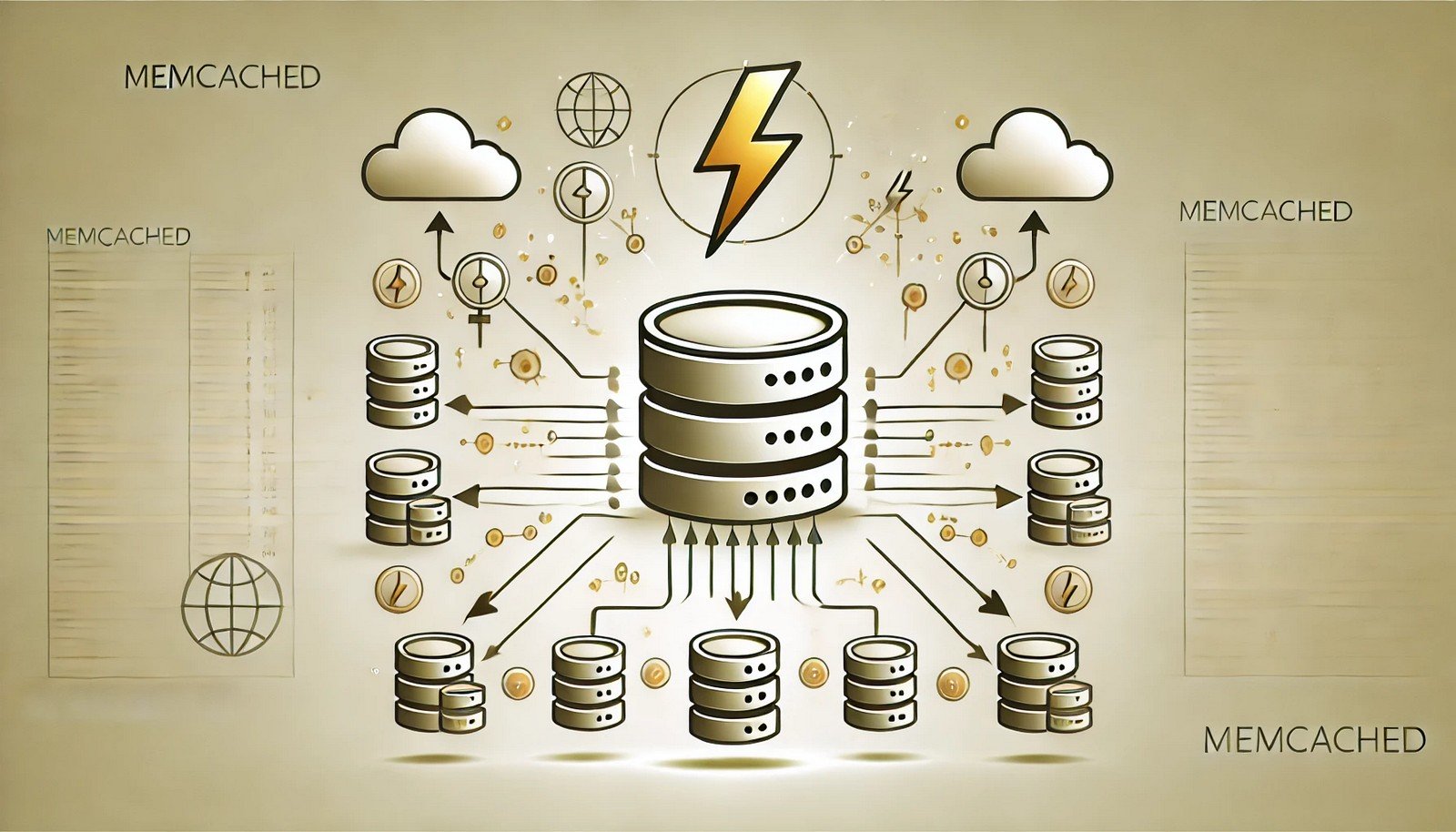Memcached
 (Representational Image | Source: Dall-E)
(Representational Image | Source: Dall-E)
Quick Navigation:
- Memcached Definition
- Memcached Explained Easy
- Memcached Origin
- Memcached Etymology
- Memcached Usage Trends
- Memcached Usage
- Memcached Examples in Context
- Memcached FAQ
- Memcached Related Words
Memcached Definition
Memcached is a high-performance, distributed memory object caching system, designed to speed up dynamic web applications by reducing database load. It temporarily stores data and objects in RAM, minimizing the need for repetitive database queries. Frequently used in scalable architectures, Memcached plays a critical role in caching query results, session data, and other computational objects to enhance performance and efficiency. Memcached uses a key-value storage model and is highly effective in environments requiring quick, read-heavy data retrieval.
Memcached Explained Easy
Think of Memcached like a treasure chest where you keep things you need often. Instead of going to the market every time you want something (like the database), you check the chest first to see if it’s there. This way, everything works faster!
Memcached Origin
Memcached was created in 2003 by Brad Fitzpatrick for LiveJournal to manage increasing data loads efficiently. Its simplicity and power quickly made it a favorite among developers building large-scale systems.
Memcached Etymology
The term "Memcached" combines "memory" (for its RAM-based storage) and "cached" (indicating temporary storage for quick access).
Memcached Usage Trends
Since its inception, Memcached has been integral to large-scale applications like social media platforms, e-commerce websites, and content delivery networks. Its lightweight and open-source nature make it a popular choice for distributed systems. Trends show consistent use in high-traffic websites and a growing interest in its integration with cloud-based solutions.
Memcached Usage
- Formal/Technical Tagging:
- Distributed Systems
- Caching Solutions
- Web Application Performance - Typical Collocations:
- "Memcached server"
- "distributed caching"
- "Memcached API"
- "in-memory key-value store"
Memcached Examples in Context
- Memcached can cache user profile data, reducing load times for personalized dashboards.
- In e-commerce, Memcached speeds up product search results by storing popular queries.
- Social networks use Memcached to store recent updates, allowing users to access feeds instantly.
Memcached FAQ
- What is Memcached used for?
Memcached is used for caching data to reduce database load and improve application speed. - Is Memcached free to use?
Yes, Memcached is open-source and free to use. - How does Memcached store data?
It stores data in memory as key-value pairs. - What are the limitations of Memcached?
Data persistence and security are limited since it stores data in volatile memory. - What programming languages are supported by Memcached?
Memcached supports multiple languages, including Python, PHP, Java, and C++. - Can Memcached be used with cloud applications?
Yes, it integrates seamlessly with cloud platforms for distributed caching. - What are typical use cases for Memcached?
Use cases include session management, caching query results, and speeding up API responses. - How is Memcached different from Redis?
Memcached focuses solely on caching, while Redis offers additional features like persistence and data structures. - What happens when Memcached runs out of memory?
It uses a Least Recently Used (LRU) policy to evict older entries and make space for new ones. - Is Memcached suitable for all applications?
It’s best for read-heavy applications and may not be ideal for scenarios requiring data durability.
Memcached Related Words
- Categories/Topics:
- Caching Systems
- Distributed Computing
- Web Scalability
Did you know?
Memcached played a crucial role in scaling Facebook during its early growth phase. Its ability to handle massive user traffic while keeping latency low was instrumental in shaping the platform’s architecture.
PicDictionary.com is an online dictionary in pictures. If you have questions or suggestions, please reach out to us on WhatsApp or Twitter.Authors | Arjun Vishnu | @ArjunAndVishnu

I am Vishnu. I like AI, Linux, Single Board Computers, and Cloud Computing. I create the web & video content, and I also write for popular websites.
My younger brother, Arjun handles image & video editing. Together, we run a YouTube Channel that's focused on reviewing gadgets and explaining technology.



Comments powered by CComment